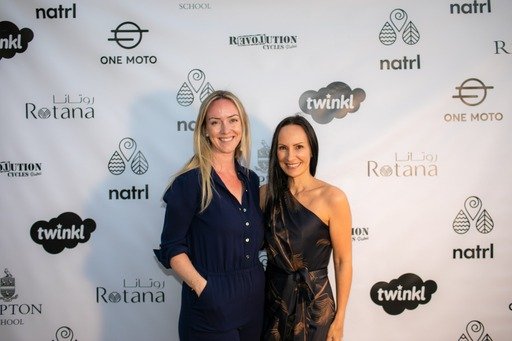After 2020, it takes a lot of bravery to look to the future and predict business trends, but The Marketing Society’s senior members have done just that.

We have collated the thoughts and opinions of a selection of our members from the UAE around some of the changes and continued accelerations our industry has seen.
Agree, disagree? Let us know @TheMarketingSoc

Tarek Abdalla 
Ganesh Iyer 
Mohamed Salah 
Rami Zahran 
Fernanda Porto 
Radwa Hassan 
Sweta Kanoria 
Mimi Nicklin 
Firdaus Shariff
Diversity and inclusion will become more sophisticated.
Tarek Abdalla, Middle East & North Africa Regional Director of Marketing, Google
Consumer expectations have shifted dramatically over the last year, including an expectation to hear diverse voices from brands. For example, an analysis of over 2.7 million YouTube ads across 51 markets revealed that women get about ⅓ of speaking time compared to men — and people have noticed.
The industry buzzwords of ‘diversity and inclusion’ should see real implementation this year across marketing efforts. The role of businesses is to take a proactive approach and ensure that equality is on the agenda. Being mindful from the start to foster a diverse environment, where everyone feels included, will drive better representation across the industry.
Furthermore, collaborating with agencies, partners, photographers, camera crew, writers and other stakeholders that hold similar ideals will make the journey easier to brave.
Acceleration of hybrid events
Sweta Kanoria, Digital Marketing & Social Media Communications Lead, Huawei Middle East
Physical events and in-person interactions have traditionally been a significant part of B2B marketing. With the pandemic, as events got cancelled, brands found new ways to stay connected with their customers. This led to an acceleration of digitalization in marketing and in respect of physical distancing guidelines, the use of virtual platforms and live broadcasts to engage audiences saw exponential growth. Virtual events are faster to execute, provide higher reach and higher return on investment. As vaccinations gets underway, physical events will be back, but the future of events and conferences looks hybrid. In other words, we will see different formats of virtual events and webinars supporting physical events and extending reach to online audiences, coupled with interactive features like live-chats, polls, virtual tours and other immersive experiences. User behaviors have transformed, and as consumers spend more time online, digital and social media will no longer be a top of funnel strategy for B2B marketing, geared towards branding, awareness and discovery. With evolving targeting and engagement mechanisms, it will rapidly develop and become a conversion stage tactic as well.
Trust is the new Black
Firdaus Shariff, VP – Marketing, Communications and Digital Customer Experience, MEA at Schneider Electric
The reality of 2020, while difficult at all fronts, brought about new opportunities for agility, empathy and humanization. Vulnerability allowed brands to showcase they were transparent with their employees, partners and customers on how they were adapting to the changing environments they were dealt with and led to an evolution of ‘customer experience’ into ‘customer trust’.
Now more than ever before, people need to trust an organisation, and be clear on the brand’s purpose, what they stand for and how an individual contributes towards this purpose by choosing that organization as their trusted partner. Knowledgeable and aware customers want to buy from knowledgeable and aware brands, and we will see this define customer behaviour even more so in 2021 and beyond. Having a stance on topics like sustainability of our planet and future generations will be a key driver for being an employer of choice for potential talent and will define an organization’s journey over the next couple of decades and whether they remain competitive and in business.
From large and overwhelming digital transformation discussions to implementable day-to-day digital solutions
Rami Zahran, CMO, Saudi German Health KSA
For the past few years there have been countless discussions, seminars, exhibitions, strategy sessions and meetings on digital transformation, both externally and within organizations. However, at no point in time did we ever need to have actual on the ground digital solutions as we did during the COVID-19 pandemic and particularly during lockdowns.
Every industry had to remain relevant by offering a solution that can mobilize products and services from the physical premise of the business to customers’ homes. We saw examples in the healthcare industry with video consultations being introduced overnight, as well as examples in the F&B and retail industries who shifted to offer their products digitally for the first time for many companies.
The trend we will continue to see in 2021 and at a larger scale is to see a lot more of these micro-digital implementations. Consumers have had a taste of it and have loved the convenience, businesses have also seen great benefits. As a result, consumers are demanding digital solutions now more than ever, and businesses are even more willing provide them. From SMEs to large organizations, I predict that in 2021 businesses will continue to implement and improve on these small micro-digital solutions that ultimately enhance the customer experience and create additional value for the businesses that implement them.
Unfortunately, for those who take no action, they may be left behind this year.
Brands find and hone their true empathy for their consumer
Mimi Nicklin, Author, Marketing Strategist & Empathy Advocate
Forbes recently noted that “the word for 2021 will be empathy.” Given the global events during the opening weeks of January alone, their prediction couldn’t be more poignant. Low empathy in society results in higher levels of disconnect, bias, segregation and depression, and we know that when society is under immense pressure consumers have always looked to the brands they trust for a solution, or an escape, in their time of need. The brands that strategically balance their purpose for humanity with their hunger for growth will be the ones that secure loyalty and word of mouth in the year ahead.
Marketing talent to grow the gig economy
Radwa Hassan, Co-Founder & Marketing and Communications Director, LEADiN ME
2020 was like a marathon that started with no one knowing when and how it would end. One of the upsides of the pandemic is that it brought the future faster than expected. Ever since digital transformation came into effect as a mandate to sustain competitiveness, it has faced a lot of scepticism and push back, from customers and stakeholders within enterprises.
Digital Marketing and all the investments related to it were seen in some corporates as good to have but not a must-have. And, although 2020 has impacted marketing spending and resources greatly, 2021 will bring significant data-driven spending and proper investment in the right resources and digital skills.
To prepare teams for these changes, many organizations are designing in-house marketing universities that target key skills to help talent navigate the future of marketing, starting by assessing where their strengths and weaknesses lie as a team. If their creative function is mostly outsourced, they will consider new models, like the gig economy, to bring their competitive advantage back inside the organization. If their content is somehow static, it may make sense to automate the more redundant work through AI.
Building your online personal brand
Mohamed Salah, Digital Marketing Manager, Microsoft
In the current situation of limited face-to-face interactions, building your online personal brand is more important than ever. This is the only way to meet new customers and also identify new opportunities. It’s crucial to have an all-star LinkedIn profile with consistency in posting and interacting. Your profile picture, summary, social storyline and posts are the new way of introducing yourself that replace the traditional face-to-face body language, facial expressions and outfit. Online and social personal branding will continue to be one of the highest growing trends in the upcoming years.
Distance learning
Fernanda Porto, Marketing & Events Consultant
As professionals lost their job or ability to provide their services in 2020, many were able to convert their business model into the digital world through distance learning. I believe this trend will continue to evolve in 2021, with a new wave of influencers becoming those industry experts who now flood social platforms, sharing their expertise to aspiring professionals in their fields as well as consumers.
For example, a make-up artists would previously rely on income from actually doing make up, especially for weddings, and teaching face to face courses with small audiences in their cities. Now, many have converted into online teaching, reaching far great audiences and building a community of followers way beyond their city. I believe this will become even stronger in 2021 as these professionals become better at content production, and as others gain inspiration and follow suit. We will be able to access niche training opportunities anywhere, in every language.
Ganesh Iyer, Managing Partner, FLC
Redefining SHopper MARKETING
2020 transformed Shopper Marketing in ways that people could not have predicted. It has always aimed to reach shoppers as close to the purchase point as possible using displays, engagement activations and eye-level shelf space to influence shoppers as they made purchase decisions in-store.
And now, the way people are shopping is changing and sustaining brand loyalty is disrupting the traditional choices on a daily basis.
Most brands have taken advantage of this situation taking proactive decisions to be present instantly and push their products online to cope with the unprecedented shopper demands. Each brand is aiming to create a noise louder than the other to enter the shopper’s mindset to purchase.
In order to sustain, brands will need to focus on creating innovative online shopping experiences that make life easier for their end shoppers, reinventing traditional shopping experiences and bringing their brand to life in new ways possible NOW.
To learn more about The Marketing Society and how we’re empowering brave marketing leaders across the region please visit https://marketingsociety.com/





